“This meeting could have been an email” is a thought that many employees have had pop up in their minds at least once in their careers. Though in-person communication is definitely essential, meetings can last way too long and actually end up costing businesses lots of money. Many times, for the sake of respecting everyone’s time, it’s best to communicate remotely. Especially when it comes to minor quibbles.
Reddit user u/mdlapla recently went viral on the r/MaliciousCompliance subreddit after sharing what can happen when you ask to have a completely unnecessary work meeting. They can rack up quite an expensive bill for the client. Scroll down for the full story, Pandas!
Unnecessary work meetings aren’t just a huge waste of time. They can also cost businesses and clients a pretty penny
Image credits: Rodeo Project Management Software (not the actual photo)
One employee share how their company dealt with a client who wanted an in-person meeting when an email would have sufficed
Image credits: gpointstudio (not the actual photo)
Image source: mdlapla
Employees often waste their work hours going to useless meetings, and are unable to say ‘no’ when invited
Unnecessary meetings are jaw-droppingly expensive because they lead to a lot of lost work productivity. Bloomberg reports that businesses in the United States lose around $100 million each year due to these sorts of meetings. And a whopping third of all meetings are utterly unnecessary.
According to research conducted by Professor Steven Rogelberg at the University of North Carolina at Charlotte, your average employee spends around 18 hours per week in meetings. Going to ‘noncritical’ meetings ends up wasting roughly $25,000 per employee, per year.
“Meetings do control us, and bad meetings have an enormous cost. You get a meeting invite and say, ‘I don’t need to be there,’ yet you say yes—why?” Rogelberg told Bloomberg that most employees go to meetings even when they know they’re not vital.
This is often done to appear engaged, not to offend the organizer of the meeting, and to be up-to-date on any and all work-related info (because it’s a bother getting that info later). In short, there are lots of subtle reasons why people simply don’t decline meeting invitations.
The end result? Lots of wasted time, frustrated workers, and tons of grumbling about colleagues who ask unnecessary questions at the end of presentations.
Meetings have become longer and longer over the past couple of decades, costing the economy billions of dollars
Discovery Therapy ABA points out that the situation might be even worse. Referring to data collected by Zippia, they claim that there are 55 million meetings held every single week in the US. That’s roughly 11 million of these each day. This leads to roughly 24 billion (with a ‘b’) working hours being wasted annually and $37 billion lost each year due to unproductivity.
The problem is likely only to get worse. Since 2000, employees have been spending 8% to 10% more time in meetings every single year.
It’s up to managers to cut back on unnecessary in-person communication and to leave live meetings for only when they’re absolutely necessary. They also need to make the point of the entire meeting very clear, and upfront.
Meanwhile, the employees themselves have to start drawing some healthy boundaries as well: if a meeting is non-critical and it’ll affect your productivity, it’s best to say no. Diplomatically, of course.
The author revealed some more context in the comments
The readers were keen to share their opinions, as well as similar stories
Some people, however, weren’t too supportive of how the company handled the billing issue
Sometimes you want to maintain "relationships" it can be solved online, but a once in a while in-person meeting with the people you have entrusted with a lot of your documents doesn't hurt anyone... especially if you can afford it
I agree. At my old job there were plenty of instances where we weren't getting anywhere with a client via emails and phone calls but were cleared up when a manager met them in person.
Load More Replies...Oh God forbid someone has to go to a physical location for work, the horror! Gd man this country has gone so soft I want to puke...
My wife used to do US disability hearings (non-attorney representative). At one point, a federal building close to her office was supposed to get the hookups to do hearings by video, saving on travel expenses for both the reps and the claimants--without the video, clients would routinely have to travel at least an hour to make it to the hearing office, and quite often my wife would have to fly to attend hearings, since they had claimants all over the US. It would've been easier on the claimants, and cheaper for my wife and her company--but the company she worked for liked the sweet, sweet kickbacks they got from Uncle Sam, and deliberately quashed the video hearing idea because it meant they could force Uncle Sam to spend more money. My wife stayed in that job almost 15 years. She doesn't miss it.
Sometimes you want to maintain "relationships" it can be solved online, but a once in a while in-person meeting with the people you have entrusted with a lot of your documents doesn't hurt anyone... especially if you can afford it
I agree. At my old job there were plenty of instances where we weren't getting anywhere with a client via emails and phone calls but were cleared up when a manager met them in person.
Load More Replies...Oh God forbid someone has to go to a physical location for work, the horror! Gd man this country has gone so soft I want to puke...
My wife used to do US disability hearings (non-attorney representative). At one point, a federal building close to her office was supposed to get the hookups to do hearings by video, saving on travel expenses for both the reps and the claimants--without the video, clients would routinely have to travel at least an hour to make it to the hearing office, and quite often my wife would have to fly to attend hearings, since they had claimants all over the US. It would've been easier on the claimants, and cheaper for my wife and her company--but the company she worked for liked the sweet, sweet kickbacks they got from Uncle Sam, and deliberately quashed the video hearing idea because it meant they could force Uncle Sam to spend more money. My wife stayed in that job almost 15 years. She doesn't miss it.

 Dark Mode
Dark Mode 

 No fees, cancel anytime
No fees, cancel anytime 


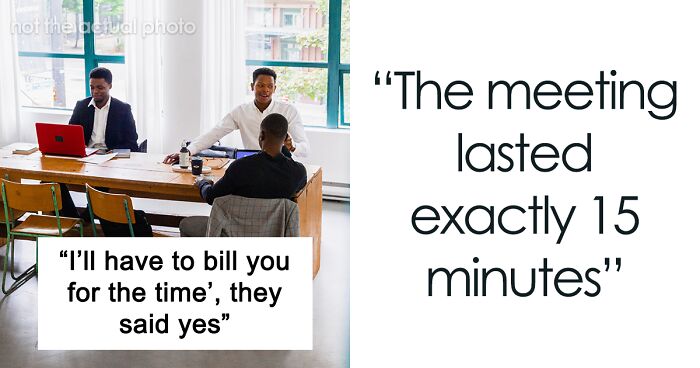

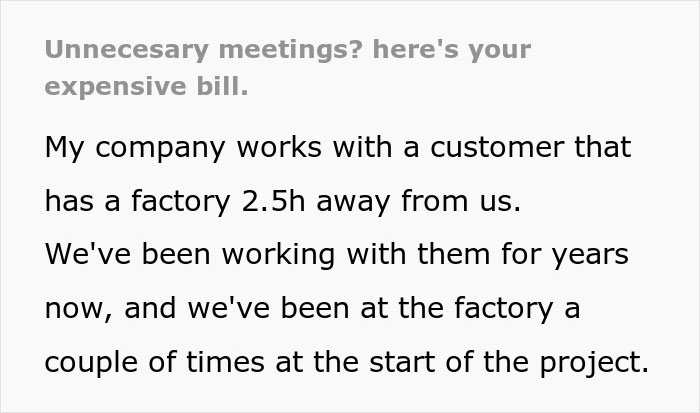
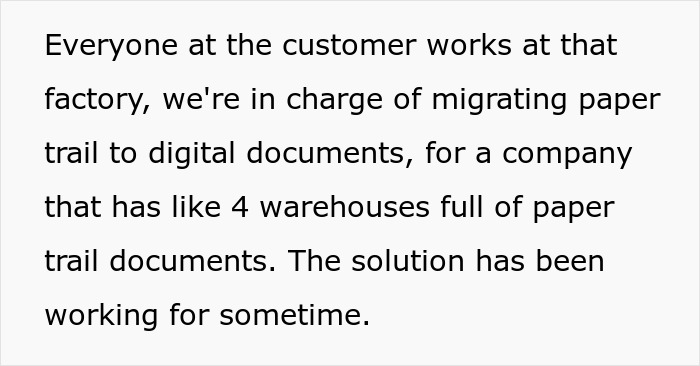
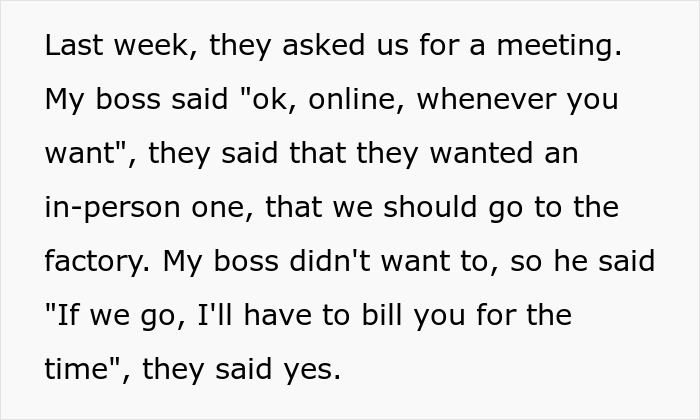

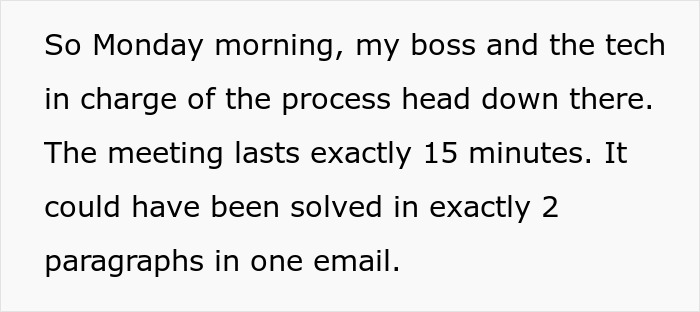
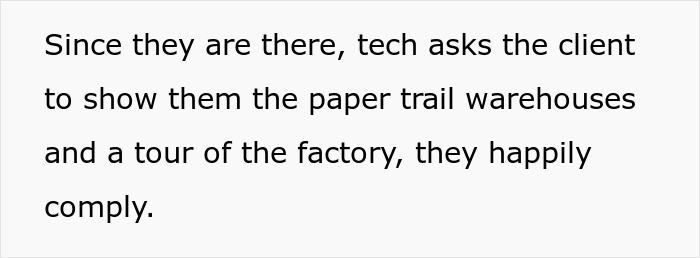
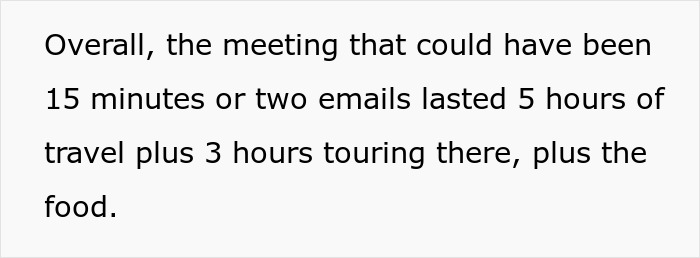

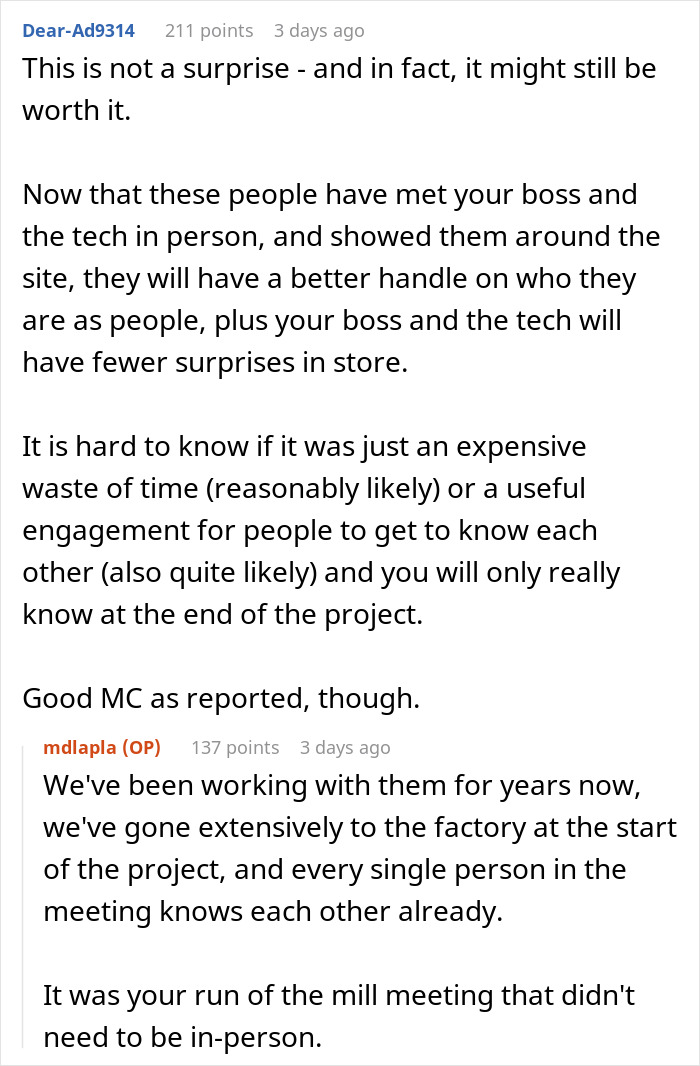



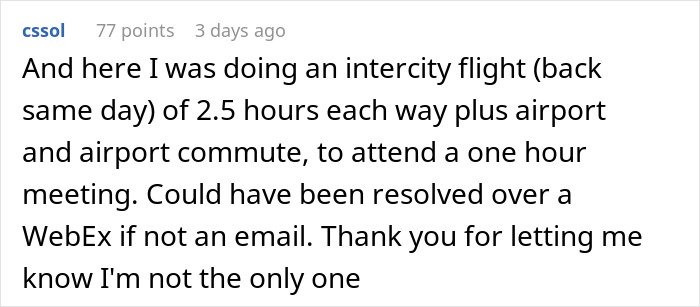
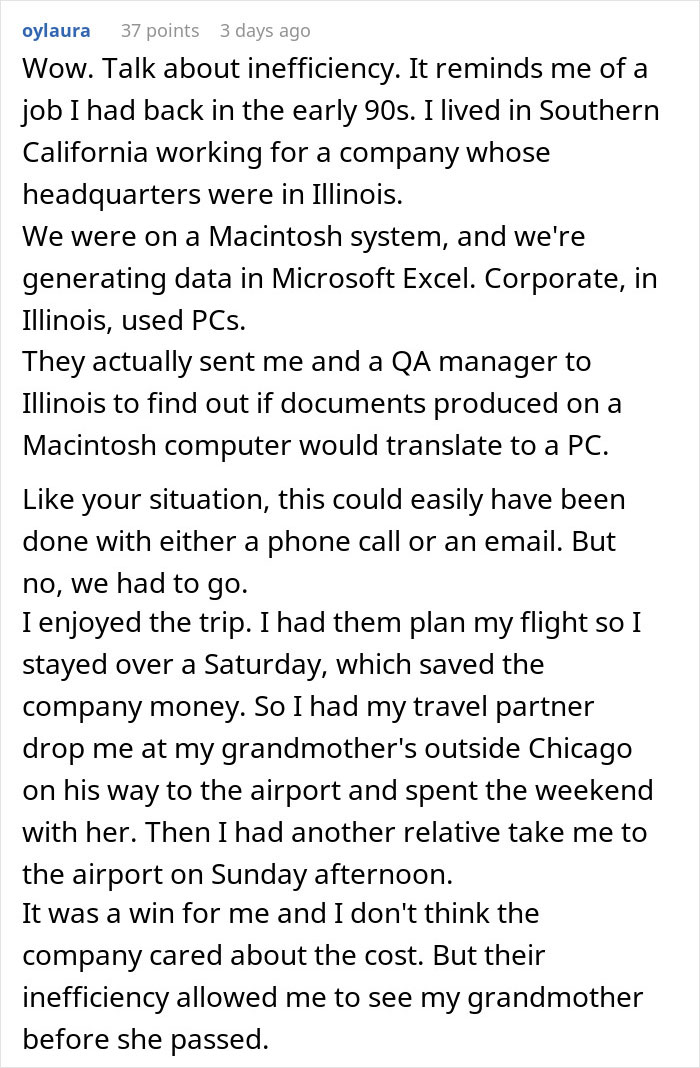
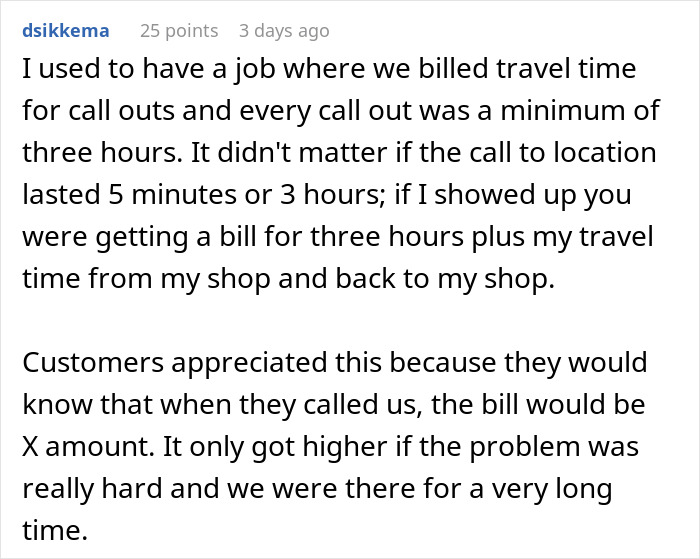

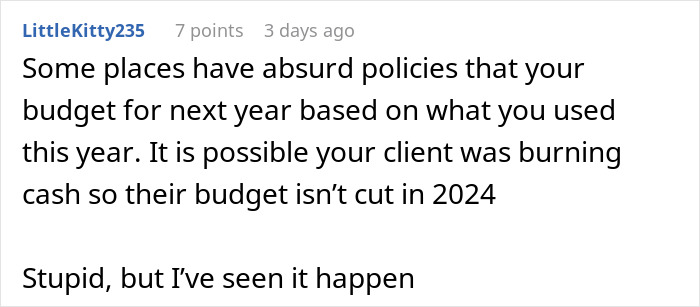


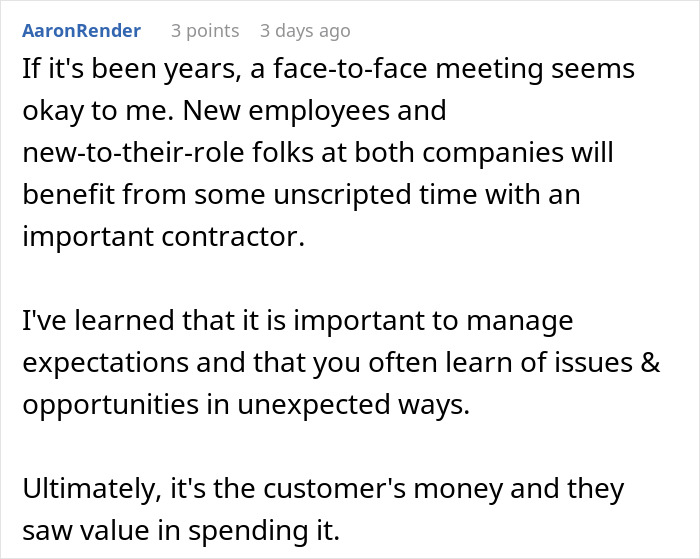
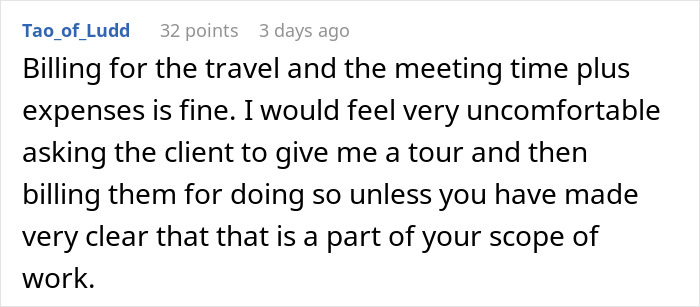
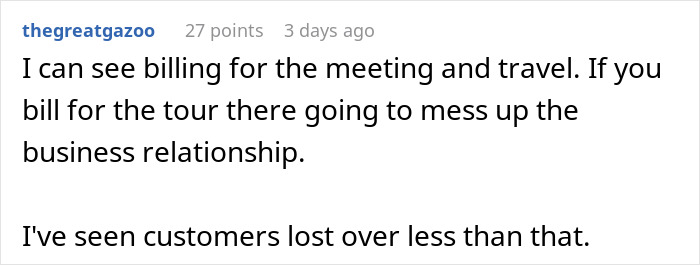
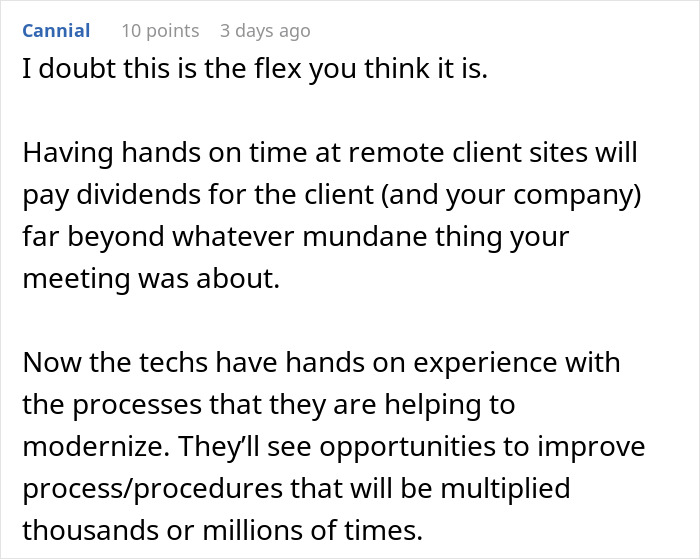
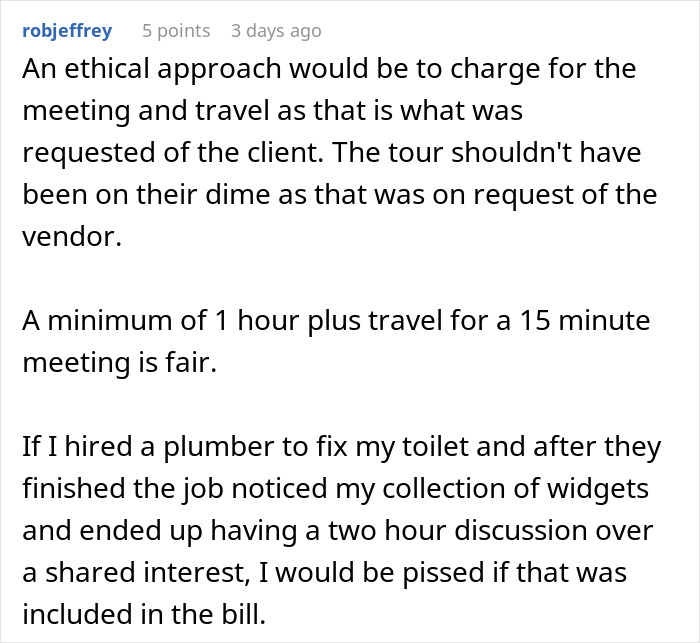




































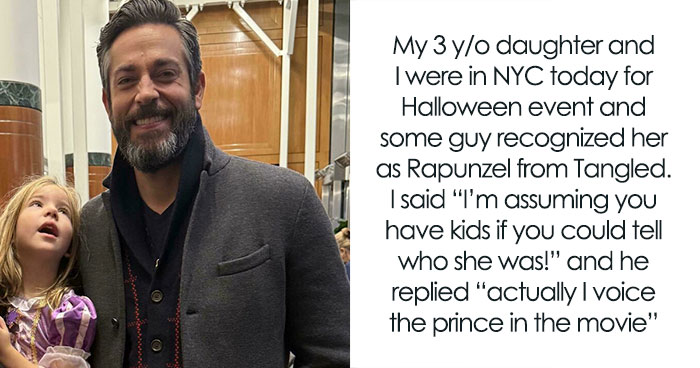





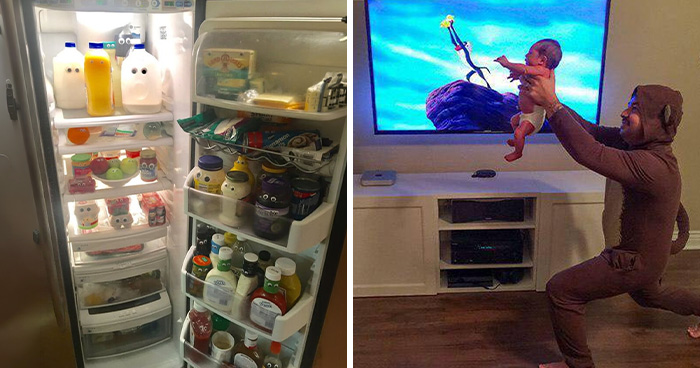

28
16